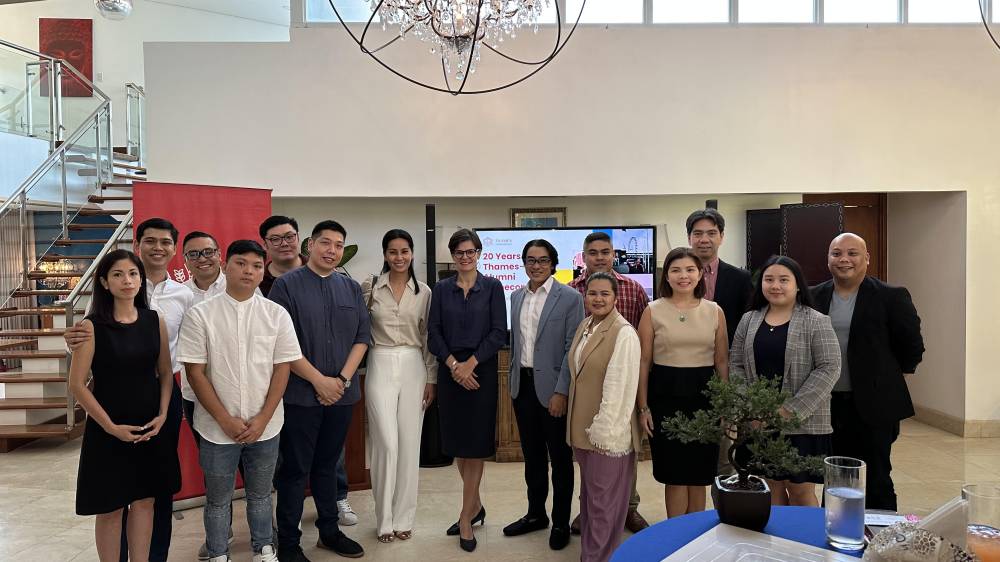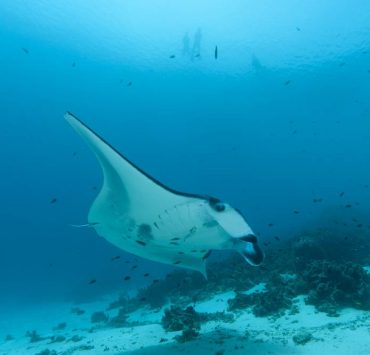Why more Filipinos should study abroad for business career success

In our interconnected world, the importance of global education cannot be discounted. A 2021 research by the study choice platform Study.eu reveals a striking trend: 36 percent of CEOs in the Forbes Global 2000 list studied abroad, up from 32 percent in 2017.
These data highlight how international exposure is crucial for attaining top business leadership roles. Beyond academic achievements, global experiences of these CEOs become valuable sources of powerful insights into diverse business practices, cultural nuances and global markets. Studying abroad provides a strategic edge, offering unique skills, broader perspectives and a diverse network across different cultures and industries.
Despite having remarkable talents, Filipinos face fierce international competition, making global education essential but quite out of reach for most.
In the thriving Philippine economy, global competitiveness and cultural literacy are key skills needed by a 21st-century Filipino professional. Global education offers Filipino students first-hand exposure to international standards, emerging trends and business practices vital for success not only in the Philippines but elsewhere in the world.
Shaina “Magic” Darmawan, for instance, is one such student who got this kind of education. She is a Thames International alumna who is now the country head of Bayer Consumer Health Philippines. She opted for Thames International’s two-year study abroad program and graduated in 2002 with a business degree from the University of Hertfordshire in the UK. We believe that the combination of her training from both institutions contributed to her success today.
The “2024 Key Trends in Southeast Asia” report by education research company ICEF reveals, however, a concerning trend: Vietnam sent 132,000 students abroad (37 percent of their market), while Malaysia and Indonesia each sent over 50,000. In contrast, the Philippines fell under “others,” indicating a lower number of students studying abroad. This gap underscores the Philippines’ lag in international education, signaling a need for urgent attention.
Thames International School is leading the charge to narrow this gap. An advocate for global education, Thames aims to send more Filipino students abroad. To support this initiative, Thames and its North Carolina partner universities, primarily University of North Carolina-Pembroke (UNCP) and Western Carolina University (WCU), offer state grants where a student only pays $5,000 for his or her annual tuition fees, making costs comparable with leading local Philippine universities.
Its Global Degree Transfer Program allows Filipino students to begin their first two years for their general subjects while in the Philippines before completing their degrees in fields like engineering, computer science, psychology, business and health-related disciplines at UNCP and WCU in the United States. With tuition fees set at $5,000 per year from the Philippines to the United States, this program has made a US degree more affordable and accessible to middle-class Filipinos. Moreover, certain programs will give students the option to work through the Optional Practical Training of the United States.
Recalling her experience, Darmawan said, “It was easy with Thames because they had liaisons with their partner universities, making the decision process for the right school and course convenient for students.” She added that studying abroad has taught her to collaborate with diverse people and cultures while fostering openness to new experiences.
Her message to students considering the Global Degree Transfer Program, “Give it a shot. There’s no better time than now because technology and connectivity are very accessible.”
Studying abroad isn’t just about personal growth and career advancement for Filipinos; it boosts the nation’s global competitiveness. With global education increasingly valued by top business leaders, Filipinos should seize the chance to study abroad and prepare for successful careers that can transcend borders. —CONTRIBUTED INQ(Jaime Noel Santos is president of Thames International School, Inc. and country chair of the Unesco Entrepreneurship Education Network in the Philippines. He can be reached at joel.santos@thames.edu.ph. For more info about the Global Degree Transfer Program, visit www.thames.edu.ph or email inquire@thames.edu.ph.)

















